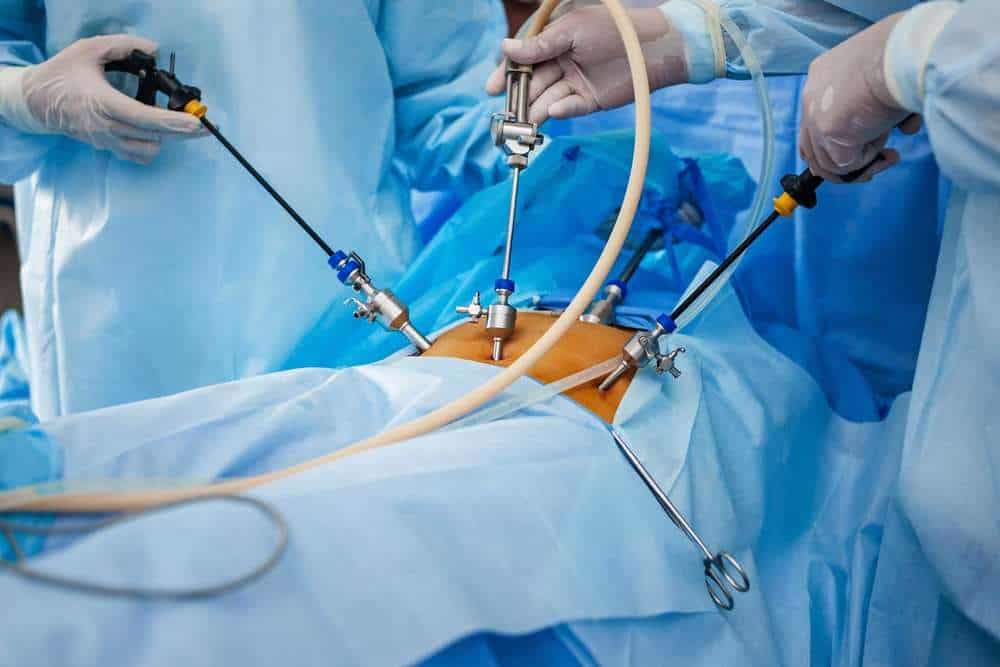Liposuction vs. Gastric Bypass: Which Option is Safer?
Defining Liposuction and Gastric Bypass
Liposuction Focus
Liposuction focuses on body contouring. It removes fat from specific areas of the body. Common areas include the abdomen, thighs, and arms. The goal is to improve appearance.
This method does not address overall weight loss. Liposuction targets localized fat deposits. It is a cosmetic procedure. Health benefits are usually minimal unless paired with exercise and a healthy lifestyle.
Gastric Bypass Aim
Gastric bypass aims at weight loss for severe obesity. It involves reducing the stomach’s size. This procedure changes how the body handles food.
Patients feel full sooner and absorb fewer calories. This method can lead to significant weight loss. It also addresses obesity-related health conditions like diabetes and high blood pressure.
Target Areas
Liposuction targets specific fat deposits. Surgeons use tubes to suction out fat cells. This method is effective for stubborn fat that doesn’t respond to diet and exercise.
Gastric bypass affects the entire stomach capacity. Surgeons create a small pouch in the stomach. This new pouch holds less food, leading to reduced calorie intake.
Cosmetic vs Health Benefits
Liposuction is primarily cosmetic. It enhances body shape but doesn’t treat obesity or related conditions. Patients often seek this method for aesthetic reasons.
Gastric bypass has significant health benefits. It helps patients lose large amounts of weight. This reduction can alleviate many health issues tied to obesity.
Methods and Risks
Both methods have risks and require careful consideration. Liposuction risks include infection, scarring, and uneven contours. Recovery time is usually shorter compared to gastric bypass.
Gastric bypass risks are more serious. They include nutritional deficiencies, infections, and complications from surgery. Recovery takes longer, often several weeks.
Procedure Insights
Liposuction Process
Liposuction is a surgical procedure. Doctors use a thin tube called a cannula. They insert the cannula into small incisions in the skin. The cannula breaks up fat cells. A vacuum device suctions out the fat from targeted areas.
The process can take one to three hours. It depends on the amount of fat being removed. Patients often undergo local or general anesthesia. This ensures comfort during the surgery.
Gastric Bypass Technique
Gastric bypass is more complex. Surgeons create a small stomach pouch. This pouch is about the size of an egg. They then connect this pouch directly to the small intestine.
This rerouting bypasses most of the stomach and part of the intestines. It reduces calorie absorption and limits food intake. The surgery usually lasts two to four hours. Patients are under general anesthesia.
Preparation for Liposuction
Preparation for liposuction involves several steps:
- Consult with a surgeon.
- Undergo medical evaluations.
- Avoid certain medications that thin blood.
- Stop smoking weeks before surgery.
Patients must follow all pre-surgery instructions carefully. This reduces risks and ensures better results.
Preparation for Gastric Bypass
Preparing for gastric bypass includes:
- Extensive medical evaluations.
- Nutritional counseling.
- Psychological assessments.
- Pre-surgery weight loss programs.
Patients must adhere to strict guidelines before surgery. This preparation phase can last several months.
Recovery from Liposuction
Recovery time for liposuction varies. Most patients return to work within a few days to a week. Swelling and bruising are common but subside over weeks.
Doctors recommend wearing compression garments. These help reduce swelling and support healing tissues.
Recovery from Gastric Bypass
Gastric bypass recovery is longer and more intensive:
- Hospital stay of 2-3 days.
- Limited physical activity for several weeks.
- Gradual reintroduction of foods, starting with liquids.
Frequent follow-ups with healthcare providers are necessary. These visits monitor progress and ensure proper nutrition.
Weight Loss Goals and Suitability
Liposuction Candidates
Liposuction suits individuals close to their ideal weight. It targets those with stubborn fat that doesn’t respond to diet or exercise. People often choose liposuction to remove fat from specific areas like the abdomen, thighs, or arms. This procedure is not a solution for overall weight loss.
Candidates typically have a Body Mass Index (BMI) under 30. They should be within 30% of their ideal body weight. Good skin elasticity is also important for better results.
Gastric Bypass Candidates
Gastric bypass surgery is for individuals with more significant weight loss needs. It’s recommended for those with a BMI of 40 or higher. People with a BMI between 35 and 39.9 may also qualify if they have serious health issues like diabetes or hypertension.
This procedure is more invasive than liposuction. It involves altering the digestive system to reduce food intake and absorption. Patients often see significant weight loss after the surgery.
Lifestyle Commitment
Both procedures require lifestyle changes post-operation. For lasting results, patients must follow a healthy diet and exercise regularly. Liposuction patients need to maintain their weight to avoid gaining fat in untreated areas.
Gastric bypass patients face stricter dietary guidelines. They must eat smaller portions and avoid high-calorie foods. Nutritional supplements are often necessary due to reduced nutrient absorption.
Medical Consultation
Consulting with medical professionals is crucial before deciding on a weight loss procedure. Doctors can assess individual health conditions and weight loss objectives. They can recommend the most suitable option based on medical history and overall health.
A thorough evaluation helps in understanding the risks and benefits of each procedure. It ensures that patients make informed decisions about their health and weight loss journey.
Risks and Safety
Liposuction Complications
Liposuction carries several common risks. Infection is a frequent concern. It can occur if the surgical area isn’t kept clean. Another risk is uneven contours. This happens when fat removal is not uniform, leading to lumpy or bumpy skin.
Bleeding and swelling are other possible issues. These usually resolve over time but can be uncomfortable. Numbness in the treated area might also happen. This is generally temporary but can sometimes be permanent.
Severe Gastric Bypass Risks
Gastric bypass surgery has more severe risks than liposuction. One major risk is nutritional deficiencies. The surgery changes how your body absorbs nutrients. You might need lifelong supplements to avoid deficiencies.
Gastrointestinal problems are another concern. Patients can experience bowel obstruction or ulcers. Dumping syndrome is also common. This condition causes rapid bowel movements after eating, leading to discomfort.
Importance of Experienced Surgeons
Choosing an experienced surgeon is crucial for both procedures. An expert reduces the risk of complications. They follow strict protocols to ensure safety.
Look for board-certified surgeons with good reviews. Check their history for any malpractice claims. Also, verify that the facility meets high standards.
Health Statistics
Health statistics show varied outcomes for these surgeries. For liposuction, most patients recover well with few complications. However, there are still risks involved.
Gastric bypass has a higher complication rate due to its complexity. Yet, it often results in significant weight loss and improved health markers like blood sugar levels.
Age Considerations
Age plays a role in surgical risks. Younger patients generally recover faster and have fewer complications. Older adults may face more challenges during recovery.
Both surgeries require a thorough health evaluation before proceeding. This ensures that the patient is fit for surgery and can handle the recovery process.
Side Effects Overview
Immediate Side Effects
Liposuction and gastric bypass have different immediate side effects. Liposuction often causes swelling and bruising. These can last for weeks. Patients might feel discomfort in the treated areas.
Gastric bypass requires long-term dietary adjustments. Right after surgery, patients must follow a liquid diet. Gradually, they reintroduce solid foods over several weeks. This process helps the stomach heal.
Skin Sensation Changes
Changes in skin sensation are common after liposuction. Some patients report numbness or tingling. These sensations usually improve over time. However, in some cases, they can last for months or even years.
Gastric bypass can lead to dumping syndrome. This happens when food moves too quickly into the small intestine. Symptoms include nausea, vomiting, and diarrhea. Avoiding certain foods can help manage this condition.
Psychological Impact
Both procedures affect body image and mental health. After liposuction, patients may need time to adjust to their new appearance. Support from family and friends is crucial during this period.
Gastric bypass has a significant psychological impact as well. Patients often face challenges with self-esteem and body image. Professional counseling can be beneficial. Joining support groups also provides emotional support.
Long-Term Adjustments
Long-term adjustments differ between the two procedures. Liposuction results are usually permanent if the patient maintains a healthy lifestyle. Regular exercise and a balanced diet are essential.
Gastric bypass requires lifelong dietary changes. Patients must take vitamin supplements to prevent deficiencies. Regular medical check-ups are necessary to monitor health.
Cost Analysis
Liposuction Costs
Liposuction is a cosmetic procedure. Out-of-pocket costs for liposuction vary widely. On average, the cost ranges from $2,000 to $7,000. This price depends on the area treated and the amount of fat removed.
Additional costs include anesthesia fees and facility charges. Post-surgery garments are also necessary. These garments can cost between $50 and $200. Recovery time off work can lead to lost wages. Most insurance plans do not cover liposuction.
Gastric Bypass Costs
Gastric bypass surgery is often covered by insurance. The average cost without insurance ranges from $20,000 to $25,000. With insurance, out-of-pocket expenses may be much lower.
Insurance companies may require pre-authorization. This process involves meeting certain criteria, such as a specific BMI or health conditions related to obesity. Patients may still have co-pays and deductibles.
Recovery Time Expenses
Recovery time varies for both procedures. Liposuction recovery can take from a few days to several weeks. Patients might need time off work, leading to lost income.
Gastric bypass recovery usually takes longer. Patients often need two to six weeks before returning to normal activities. Longer recovery means more time off work and potential loss of earnings.
Long-term Financial Benefits
Gastric bypass can offer long-term financial benefits. It can reduce obesity-related health expenses over time. Conditions like diabetes, high blood pressure, and sleep apnea often improve after surgery.
Patients may save on medication costs and fewer doctor visits. A study in 2013 found that weight loss surgery patients saved about $11,000 in healthcare costs over five years.

Additional Considerations
Both procedures have additional financial considerations. For liposuction, follow-up treatments may be necessary for optimal results. These treatments add to the overall cost.
For gastric bypass, nutritional supplements are often needed long-term. Regular follow-up appointments with healthcare providers are also essential.
Results and Effectiveness
Fat Removal
Liposuction removes fat directly from specific areas. Researchers found that on average, liposuction removes about 4-5 liters of fat per session. This is roughly equivalent to 8-10 pounds. The results are immediate and visible right after the procedure.
Gastric bypass leads to more comprehensive weight loss. Patients typically lose about 60-80% of their excess weight within the first year. This method alters the digestive system, leading to significant long-term changes.
Permanence of Results
Liposuction results depend heavily on lifestyle choices. Patients must maintain a healthy diet and exercise regularly to keep the fat off. If they do not, the fat can return in other areas of the body.
Gastric bypass offers more permanent results. This procedure changes how the body absorbs food, making it harder to regain weight. However, patients still need to follow a strict diet and exercise plan to maintain their new weight.
Success Stories
Many patients have shared positive outcomes from both procedures. One patient lost 50 pounds after liposuction and kept it off by adopting a healthier lifestyle. Another patient who underwent gastric bypass lost over 100 pounds and maintained this weight loss for over five years.
These real-life experiences highlight the effectiveness of both methods. Liposuction provides quick results for targeted fat removal, while gastric bypass offers extensive and lasting weight loss.
Making the Right Choice
Personal Research
Thorough research is crucial. Each person’s body is unique. Liposuction and gastric bypass offer different results. Liposuction removes fat from specific areas. Gastric bypass changes the digestive system to aid weight loss.
Consulting with a doctor helps. They can explain the procedures. They can also discuss risks and benefits. Understanding each procedure’s implications fully is essential.
Health Status
Consider your health status. Some may not qualify for surgery due to medical conditions. Liposuction suits those near their ideal weight but have stubborn fat pockets. Gastric bypass suits those with a BMI over 40 or over 35 with obesity-related conditions.
Doctors assess your health before recommending a procedure. This ensures safety. It also increases the chances of success.
Weight Loss Goals
Define your weight loss goals. Liposuction offers immediate results but is not a weight loss solution. Gastric bypass leads to significant weight loss over time.
Those looking for major weight loss often choose gastric bypass. Those wanting body contouring may prefer liposuction.
Post-Surgery Lifestyle Changes
Both surgeries require lifestyle changes post-surgery. Gastric bypass demands stricter changes. Patients must follow a specific diet and exercise regimen.
Liposuction patients also need to maintain a healthy lifestyle to keep results. Willingness to adhere to post-surgery lifestyle changes affects long-term success.
Pros and Cons
Weigh the pros and cons of each procedure:
- Liposuction Pros:
- Quick recovery
- Immediate results
- Targets specific areas
- Liposuction Cons:
- Not for significant weight loss
- Risk of uneven fat removal
- Potential complications like infection
- Gastric Bypass Pros:
- Significant weight loss
- Improves obesity-related conditions
- Long-term results
- Gastric Bypass Cons:
- Longer recovery time
- Stricter post-surgery regimen
- Higher risk of complications
Potential Risks and Benefits
Both procedures come with potential risks and benefits. Liposuction risks include infection, scarring, and anesthesia reactions. Benefits include improved appearance and self-esteem.
Gastric bypass risks include nutritional deficiencies, infections, and blood clots. Benefits include substantial weight loss, improved health, and enhanced quality of life.
Closing Thoughts
Choosing between liposuction and gastric bypass is a big decision. Each procedure has its own benefits, risks, and costs. Your choice should align with your weight loss goals and health needs. Always consult with a healthcare professional to make an informed decision.
Ready to take the next step? Research thoroughly and discuss your options with your doctor. Your health is worth it. Stay informed, stay healthy, and make the best choice for your future.
Frequently Asked Questions
What is the main difference between liposuction and gastric bypass?
Liposuction removes fat from specific areas, while gastric bypass reduces stomach size to limit food intake. Liposuction is cosmetic; gastric bypass is a weight-loss surgery.
Who is a suitable candidate for liposuction?
Ideal candidates are within 30% of their ideal weight, have firm skin, and good muscle tone. It’s not for significant weight loss.
What are the risks associated with gastric bypass?
Gastric bypass can lead to infection, blood clots, or nutritional deficiencies. Consult a doctor for personalized risk assessment.
How long is the recovery period for liposuction?
Recovery varies but typically takes about two weeks. Full results may be visible in six months.
Are the results of gastric bypass permanent?
Results can be long-lasting if patients adhere to dietary guidelines and maintain a healthy lifestyle post-surgery.
Which procedure is more cost-effective?
Liposuction generally costs less upfront but may require multiple sessions. Gastric bypass has higher initial costs but can result in significant long-term health savings.
Can liposuction help achieve weight loss goals?
Liposuction targets localized fat deposits but isn’t a solution for obesity or overall weight loss. It enhances body contouring.






